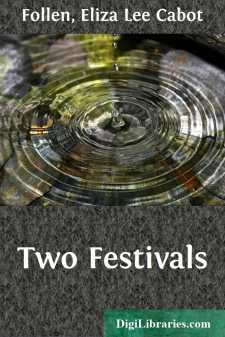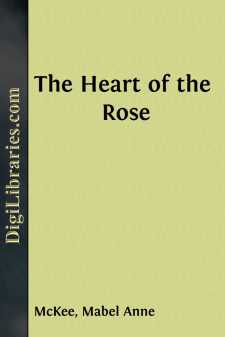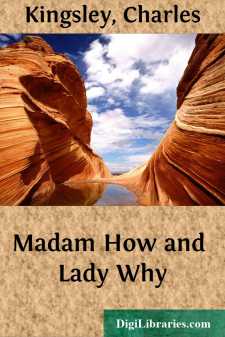Juvenile Nonfiction
- Animals 10
- Art 1
- Biography & Autobiography 2
- Boys & Men 1
- Business & Economics 3
- Cooking & Food 2
- Gardening 1
- General 32
- Girls & Women 7
- History 2
- Holidays & Celebrations 1
- Lifestyles 79
- Literary Criticism & Collections 5
- Nature 11
- Readers 40
- Religion 4
- Sports & Recreation 1
Juvenile Nonfiction Books
Sort by:
MAY MORNING AND NEW YEAR'S EVE. It is the evening before the first of May, and the boys are looking forward to a May-day festival with the children in the neighborhood. Mrs. Chilton read aloud these beautiful lines of Milton:— Now the bright morning star, Day's harbinger,Comes dancing from the east, and loads with herThe flowery May, who from her green lap throwsThe yellow cowslip, and the...
more...
by:
Percy Lubbock
SIR THOMAS MALORY 15th century DEATH OF SIR GAWAINE And so, as Sir Mordred was at Dover with his host, there came King Arthur with a great navy of ships, galleys, and carracks. And there was Sir Mordred ready waiting upon his landing, to let his own father to land upon the land that he was king of. Then was there launching of great boats and small, and all were full of noble men of arms; and there was...
more...
by:
Annie H Ryder
INTRODUCTION. When we make an object with our hands, we frequently notice that the most care is needed as we near its completion. A false stroke of the brush will change an angel into a demon, a misguided blow of the mallet will shiver the statue into fragments: so, in the work which attempts to form a noble womanhood, all the efforts of years of training will be marred or rendered ineffectual, if the...
more...
by:
Mabel Anne McKee
e was her brother. The thought gave her the same thrill this morning as it had given her on a morning seventeen years back, when the old family doctor had laid a tiny bundle in her arms and said, "You'll have to be his sister and mother both, Elizabeth." Her twelve years then hung heavily on her; her little face, stained with the marks of recent tears, took on a warmer glow as she touched...
more...
by:
William Patten
During the time when Pericles was at the head of the state at Athens he spared no pains and no money to make the city beautiful. He himself was a lover and patron of the arts, and he was determined that Athens should become the very centre of art and refinement, and that she should have splendid public buildings and splendid sculptures and paintings. So he gathered round him all the great sculptors and...
more...
by:
Charles Kingsley
CHAPTER I—THE GLEN You find it dull walking up here upon Hartford Bridge Flat this sad November day? Well, I do not deny that the moor looks somewhat dreary, though dull it need never be. Though the fog is clinging to the fir-trees, and creeping among the heather, till you cannot see as far as Minley Corner, hardly as far as Bramshill woods—and all the Berkshire hills are as invisible as if it...
more...
A MIDSUMMER NIGHT'S DREAM Hermia and Lysander were lovers; but Hermia's father wished her to marry another man, named Demetrius. Now, in Athens, where they lived, there was a wicked law, by which any girl who refused to marry according to her father's wishes, might be put to death. Hermia's father was so angry with her for refusing to do as he wished, that he actually brought her...
more...
by:
James Johonnot
HOW FOWLS LOOK. 1. Here we find the hen and chickens, a new company of our farm-yard friends. We see that they are very unlike the other friends we have been studying, and, though we know them well, we may find out something new about them. 2. Instead of a coat of hair or fur, the hen is covered with feathers, all pointing backward and lying over each other, so that the rain falls off as from the...
more...
by:
James Baldwin
The Home Coming Tom was to arrive early in the afternoon, and there was another fluttering heart besides Maggie's when it was late enough for the sound of the gig wheels to be expected. For if Mrs. Tulliver had a strong feeling, it was fondness for her boy. At last the sound came—that quick light bowling of the gig wheels. "There he is, my sweet lad!" Mrs. Tulliver stood with her arms...
more...
CHAPTER I Wherein Great Risks Are Taken and the Limberlost Guard Is Hired Freckles came down the corduroy that crosses the lower end of the Limberlost. At a glance he might have been mistaken for a tramp, but he was truly seeking work. He was intensely eager to belong somewhere and to be attached to almost any enterprise that would furnish him food and clothing. Long before he came in sight of the camp...
more...











